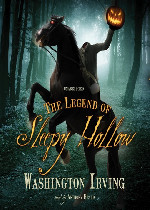
The Legend of Sleepy Hollow(睡谷传说) 立即阅读
"The Legend of Sleepy Hollow" is a short story of speculative fiction by American author Washington Irving, contained in his collection of 34 essays and short stories entitled The Sketch Book of Geoffrey Crayon, Gent. Written while Irving was living abroad in Birmingham, England, "The Legend of Sleepy Hollow" was first published in 1820. Along with Irving's companion piece "Rip Van Winkle", "The Legend of Sleepy Hollow" is among the earliest examples of American fiction with enduring popularity, especially during the Halloween season.
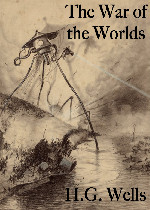
The War of the Worlds(星际战争) 立即阅读
The War of the Worlds is a science fiction novel by English author H. G. Wells. It first appeared in serialized form in 1897, published simultaneously in Pearson's Magazine in the UK and Cosmopolitan magazine in the US. The first appearance in book form was published by William Heinemann of London in 1898. It is the first-person narrative of an unnamed protagonist in Surrey and that of his younger brother in London as Earth is invaded by Martians. Written between 1895 and 1897, it is one of the earliest stories that detail a conflict between mankind and an extraterrestrial race. The novel is one of the most commented-on works in the science fiction canon. The War of the Worlds has two parts, Book One: The Coming of the Martians and Book Two: The Earth under the Martians. The narrator, a philosophically inclined author, struggles to return to his wife while seeing the Martians lay waste to the southern country outside London. Book One also imparts the experience of his brother, also unnamed, who describes events as they deteriorate in the capital, forcing him to escape the Martian onslaught by boarding a paddle steamer near Tillingham, on the Essex coast.
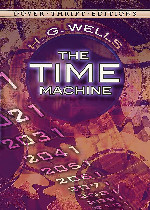
When the Time Traveller courageously stepped out of his machine for the first time, he found himself in the year 802,700 -- and everything has changed. In another, more utopian age, creatures seemed to dwell together in perfect harmony. The Time Traveller thought he could study these marvelous beings -- unearth their secret and then retum to his own time -- until he discovered that his invention, his only avenue of escape, had been stolen. H.G. Well's famous novel of one man's astonishing journey beyond the conventional limits of the imagination first appeared in 1895. It won him immediate recognition, and has been regarded ever since as one of the great masterpieces in the literature of science fiction.
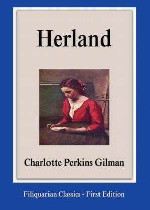
Herland is a utopian novel from 1915, written by feminist Charlotte Perkins Gilman. The book describes an isolated society composed entirely of women, who reproduce via parthenogenesis. The result is an ideal social order: free of war, conflict, and domination. It was first published in monthly installments as a serial in 1915 in The Forerunner, a magazine edited and written by Gilman between 1909 and 1916, with its sequel, With Her in Ourland beginning immediately thereafter in the January 1916 issue. The book is often considered to be the middle volume in her utopian trilogy; preceded by Moving the Mountain, and followed by, With Her in Ourland. It was not published in book form until 1979.
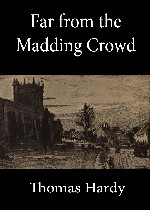
Far from the Madding Crowd(远离尘嚣) 立即阅读
Far from the Madding Crowd was Thomas Hardy's first major literary success, and it edited with an introduction and notes by Rosemarie Morgan and Shannon Russell in Penguin Classics. Independent and spirited Bathsheba Everdene has come to Weatherbury to take up her position as a farmer on the largest estate in the area.
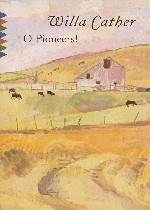
Set on the Nebraska prairie where Willa Cather grew up, this powerful early novel tells the story of the young Alexandra Bergson, whose dying father leaves her in charge of the family and of the lands they have struggled to farm. In Alexandra's long flight to survive and succeed, O Pioneers! relates an important chapter in the history of the American frontier. Evoking the harsh grandeur of the prairie, this landmark of American fiction unfurls a saga of love, greed, murder, failed dreams, and hard-won triumph. In the fateful interaction of her characters, Willa Cather compares with keen insight the experiences of Swedish, French, and Bohemian immigrants in the United States. And in her absorbing narrative, she displays the virtuoso storytelling skills that have made her one of the most admired masters of the American novel.
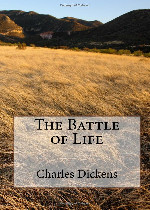
The Battle of Life(人生的战斗) 立即阅读
The Battle of Life: A Love Story is a novella by Charles Dickens, first published in 1846. It is the fourth of his five "Christmas Books", coming after The Cricket on the Hearth and followed by The Haunted Man and the Ghost's Bargain. The setting is an English village that stands on the site of an historic battle. Some characters refer to the battle as a metaphor for the struggles of life, hence the title. Battle is the only one of the five Christmas Books that has no supernatural or explicitly religious elements.
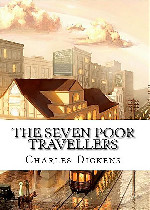
The Seven Poor Travellers(七个可怜的旅行者) 立即阅读
Strictly speaking, there were only six Poor Travellers; but, being a Traveller myself, though an idle one, and being withal as poor as I hope to be, I brought the number up to seven. This word of explanation is due at once, for what says the inscription over the quaint old door? RICHARD WATTS, Esq. by his Will, dated 22 Aug. 1579, founded this Charity for Six poor Travellers, who not being ROGUES, or PROCTORS, May receive gratis for one Night, Lodging, Entertainment, and Fourpence each. It was in the ancient little city of Rochester in Kent, of all the good days in the year upon a Christmas-eve, that I stood reading this inscription over the quaint old door in question.
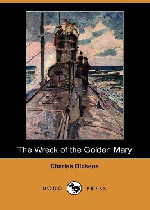
The Wreck of the Golden Mary(金玛丽号沉船记) 立即阅读
I was apprenticed to the Sea when I was twelve years old, and I have encountered a great deal of rough weather, both literal and metaphorical. It has always been my opinion since I first possessed such a thing as an opinion, that the man who knows only one subject is next tiresome to the man who knows no subject. Therefore, in the course of my life I have taught myself whatever I could, and although I am not an educated man, I am able, I am thankful to say, to have an intelligent interest in most things.

Doctor Marigold, named for the man who delivered him, is a "cheap-jack" who hawks sundries from a traveling cart he inhabits with his wife and his daughter Sophy. The mother beats Sophy, but Marigold, feeling powerless, does nothing to stop her. When the child dies of a fever, her guilt-wracked mother commits suicide.